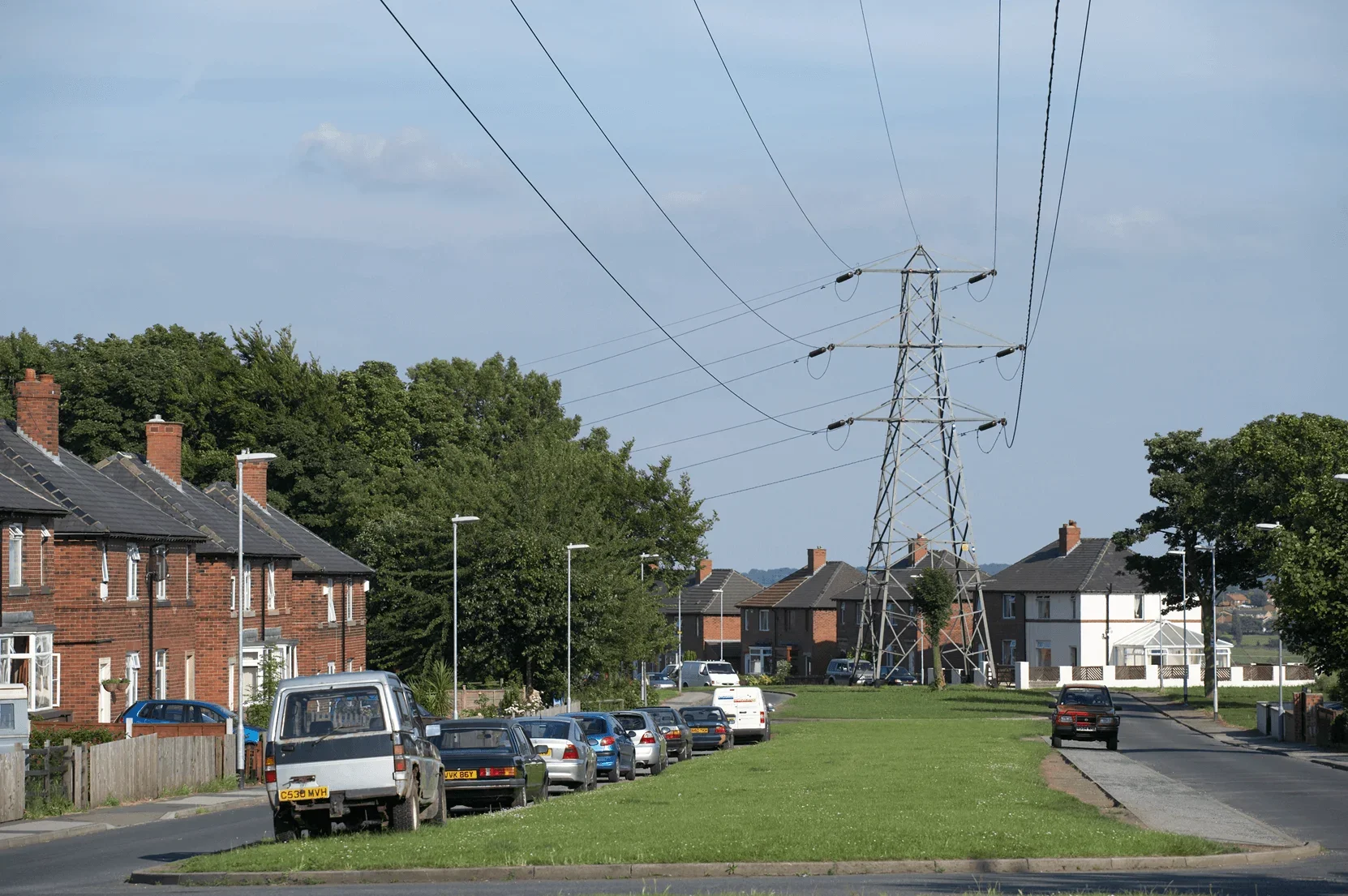BUSINESS ENERGY
Business energy tariffs explained
Read time: 5 minutes
By Les Roberts, Business Energy Expert
6th November, 2025
Choosing the right energy tariff for your business can be confusing. Should you fix your rates? Would a no-standing charge tariff work for your business? Could you save money with a time-of-use tariff? So many questions.
But, unlike domestic energy deals, businesses can't simply choose from an off-the-shelf tariff. Instead, tariffs are tailored to the specific needs of your business. This is because, unlike households, businesses use energy in vastly different ways depending on the industry they're in.
That's why it's always worth getting some expert help to make sure you're on the right type of deal and the best possible rates. It's especially important that you're completely happy with the terms and rates before you sign, as business energy contracts don’t offer a cooling-off period.

Here, we break down business gas and electricity tariffs, explain how they work, and share tips to help you get the most from a business energy comparison.
What business gas and electricity tariffs are available?
Business energy suppliers know that every business is different. That’s why tariffs are designed for the different ways businesses use energy.
For instance, a cafe and a kebab shop might use roughly the same amount of energy for cooking and lighting, but the kebab shop will probably use a lot of energy during off-peak hours, so a time-of-use contract could be most suitable.
And while a salon and a car mechanic both work relatively standard hours (between 8 am and 7 pm) and need electricity to operate, they use power in very different ways, and their energy contract will reflect this.
To help you find your way around what's on offer, here's a breakdown of the most common types:
Fixed-term contract
A fixed-term contract offers stability by locking in the price you pay per unit of energy (measured in kWh) for the duration of the contract. While your rates remain consistent, your monthly bill will still vary depending on how much energy you use.
Best for: Businesses that want to avoid price fluctuations and easily forecast energy costs.
When to switch: You can only switch from a fixed contract once it enters its switching window. This is usually a few months before its end date. Your new contract will start when your current one ends.
Variable-rate contract
In a variable-rate contract, your unit price can go up or down, depending on market conditions. While you might benefit from price drops, there’s also the risk of paying more if energy prices rise.
Best for: Businesses willing to take some risk for the chance of lower costs.
When to switch: You can switch to a fixed contract subject to your supplier’s notice period.
Blend and Extend
When your contract enters its renewal window, your supplier might offer to extend it at rates between the rates you’re currently paying and current market rates.
Best for: Businesses happy with their current supplier.
When to switch: This is a new fixed-term contract. You’ll start paying this new rate straight away, and your contract will be extended for a certain period, during which time this rate will be fixed
Flex approach
You bulk-buy energy in advance, giving you access to wholesale rates.
Best for: Businesses with high energy consumption.
When to switch: This is a fixed-rate contract, so you can only switch once it enters its switching window. Your new contract will start when your current one ends.
Pass through
Your business energy bill is split between fixed wholesale rates and other charges like National Grid and Transmission Network Use of System
Best for: Medium to large businesses that can tolerate risk and are willing to be more involved.
When to switch: This is not a fixed contract, so you can switch subject to your supplier’s terms.
Time-of-use tariff
A time-of-use tariff charges different rates for electricity depending on when you use it. Prices are typically lower during off-peak times, such as overnight, and higher during peak hours when demand is greatest. These tariffs are designed to encourage businesses to shift their energy use to less busy times of the day.
Best for: Businesses that use a lot of energy during 'off-peak' hours. You can save money by using energy during cheaper, off-peak periods. It’s also a more sustainable option, as it helps balance demand on the grid. But peak rates can be significantly higher, so you’ll need to carefully plan your energy usage to benefit.
When to switch: As this is a fixed-term contract, you can only switch once it enters its switching window. Your new contract will start when your current one ends. Find out more in our guide to time-of-use tariffs.
Deemed-rate contract
These rates are typically much higher and are applied automatically if you don’t negotiate a new deal before moving into new premises.
Avoid this: Deemed rates are expensive and often unnecessary.
When to switch: You can switch to a fixed contract at any time.
Out-of-contract
If you fail to arrange a new deal when your current contract ends, your supplier will automatically place you on out-of-contract rates. Although this guarantees your energy supply, you’ll pay over the odds for gas and electricity.
Avoid this: Letting your contract roll over can lead to unnecessary costs.
When to switch: You can switch to a fixed contract at any time.
Which tariff is right for your business?
For most businesses, a fixed-term contract offers the best balance of stability and cost control. As your rates are fixed, you know how much you pay for the energy you use. This makes budgeting easier over the term of the contract.
If you generate electricity at your business, it’s worth asking your supplier about a tariff that supports the Smart Export Guarantee. If you’re eligible for the scheme, you can make money by selling power back to the Grid.
Understanding how credit ratings affect energy rates
When signing up for a business energy tariff, your credit rating helps determine the options available to you. Business energy suppliers look at your business credit score because supplying gas and electricity involves significant costs and risks.
Here’s how your credit score can impact your energy contract:
- Businesses with strong credit ratings can usually access more competitive tariffs and better deals.
- If your business has a poor credit score or operates in a high-risk industry, some suppliers may deny you access to their best rates or even refuse service.
For businesses with low credit scores, suppliers might:
- Charge a premium.
- Require a security deposit.
- Insist on direct debit payments.
- Install a prepayment meter.
You can learn more in our guide to business energy and your credit score.
What about start-ups?
New businesses without an established credit history may face similar challenges. Suppliers are cautious because they lack proof of your ability to pay. If this applies to your business, consider shopping around or working with a broker to find flexible options.
What happens when your business energy contract ends?
When your business energy contract expires, you’re automatically switched to your supplier’s out-of-contract rates. These are typically among a supplier’s most expensive rates. To avoid this, it’s crucial to:
- Monitor your contract end date: Keep track of when your current contract expires
- Compare deals early: Start researching options during your switching window
- Renegotiate or switch suppliers: Don’t settle for high default rates—seek out better deals tailored to your needs
By taking these steps, you might be able to save your business significant amounts on energy costs.
How tailored tariffs benefit your business
The flexibility of business energy tariffs means you can find a deal that aligns perfectly with your usage patterns, size, and industry. Here are some options to explore:
- Prepaid electricity for business: A prepayment meter allows you to pay for energy upfront, helping to avoid unexpected bills. This can be ideal for businesses with tight budgets or those managing cash flow closely. But, as with domestic prepayment meters, rates are usually higher than on fixed-rate contracts.
- Green tariffs: Many suppliers now offer renewable energy options, allowing you to reduce your carbon footprint while meeting sustainability goals.
- Multi-site contracts: For businesses operating across multiple locations, a single multisite energy contract can simplify billing and often secure better rates.
Why should you switch energy suppliers?
Switching energy suppliers isn’t just about saving money - it’s also an opportunity to secure better terms and tailor your tariff. Many businesses stick with their current supplier out of convenience, but this could cost them hundreds, if not thousands, more annually.
How to make switching easier
Using a comparison service like MoneySuperMarket for your commercial energy supply can simplify the process.
We’ve partnered with Bionic to make comparing and switching simpler. Bionic uses smart data to compare quotes from a panel of suppliers. An energy expert will talk you through the options to make sure you’re happy before you sign and will support you with the switch.
Using smart data helps cut the amount of form-filling you need to do, but it might help speed things up if you have the following to hand when you compare quotes: A recent energy bill.
- Your business registration details.
- Your MPAN (electricity) and MPRN (gas) numbers.
- Your current contract’s end date.
- The date your switching window opens.
How to get the best energy tariff for your business
Here are some tips to ensure you’re getting the most value:
- Understand your usage: Note down your peak energy consumption times and overall usage.
- Shop around: Compare quotes from multiple suppliers. Don’t just rely on your current provider’s renewal offer.
- Seek expert advice: Services like Bionic can help match you with the best tariff for your needs.
- Consider tailored tariffs: Look into options that suit your specific business operations, such as green or multi-site tariffs.
- Avoid expensive pitfalls: Stay proactive about contract renewals to avoid rollover or deemed-rate contracts.
Understanding energy tariffs might seem complex, but it’s worth taking the time to find the right deal. By knowing your options and staying on top of your contract terms, you can save money and avoid costly mistakes.
Whether it’s a business gas contract or electricity tariffs, exploring tailored options ensures your business energy supply aligns with your unique requirements.
For hassle-free comparisons and expert guidance, click the button on the right to get started.
Is it time to compare business energy quotes and switch?
Take the hassle out of sorting your next energy deal. We compare from a panel of suppliers. You choose the rates that are right for your business.
By clicking ‘COMPARE TODAYS RATES’ you agree for us to search your current energy supplier and usage though industry held data. Enter manually
Our experts share essential knowledge on business energy
All related guides
View all energy guides
- A complete guide to business energy for offices
- A complete guide to business energy for restaurants
- A complete guide to business energy for shops
- Average business energy consumption - How much does your business use?
- How to get a business energy audit to save money and boost efficiency
- A complete guide to business energy bills
- Business energy brokers – everything you need to know
- What are no standing charge business energy tariffs?
- Business energy efficiency: how to save energy at your business
- Change of Tenancy - Moving business premises and your energy contract
- Commercial property landlord energy advice
- Energy performance certificate for business
- A complete guide to half hourly electricity meters
- How does the energy market affect the cost of your energy bills?
- How switching to energy efficient lighting can save your business money
- How to pay your business energy bills to save money and avoid late fees
- How your business credit score affects your energy deals
- Compare large and industrial business energy prices
- Prepayment meters for business: The complete 2025 guide for SMEs
- What are renewable energy certificates and REGOs for small businesses?
- Renewable Energy for Business
- Business Smart Meters: Your Guide to Savings, Installation, and Supplier Comparison
- Commercial solar panel electricity
- The nuclear RAB levy explained: what it means for your business
- A business guide to time-of-use energy tariffs
- Business energy tariffs explained
- Everything you need to know about the Smart Export Guarantee (SEG)
- Compare small business & micro business energy prices
- Compare the cheapest business energy suppliers
- What is the Climate Change Levy?
- Business energy meter installation: Your complete guide
- Multi-site meters and business energy management
- How much is VAT on business energy?
- What happens when your energy supplier goes bust?
- What is a letter of authority (LoA) for business energy?
- What is Market-wide Half-Hourly Settlement (MHHS) and how does it work?
- What is business microgeneration?
How to switch business energy suppliers with MoneySuperMarket
We can switch your business to a better energy deal in three simple steps
1
We find your details
Just enter your business address and we'll use industry data to accurately find and understand your energy usage.
2
We talk through your quotes
One of our UK-based energy experts will search our supplier panel and give you a call to talk through your quotes.
3
You choose the deal you want
With all the information to hand, you choose the deal that best suits your business and we’ll handle the switch for you.
Compare today’s business energy rates
By clicking ‘COMPARE TODAY'S RATES’ you agree for us to search your current energy supplier and usage though industry held data. Enter manually







